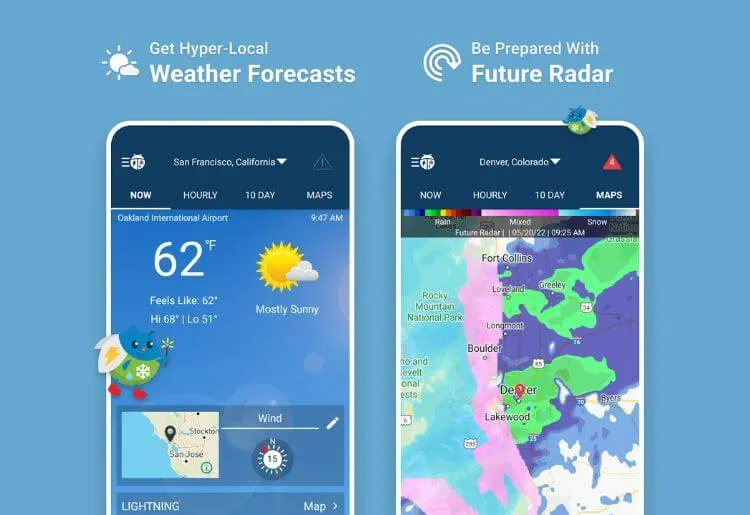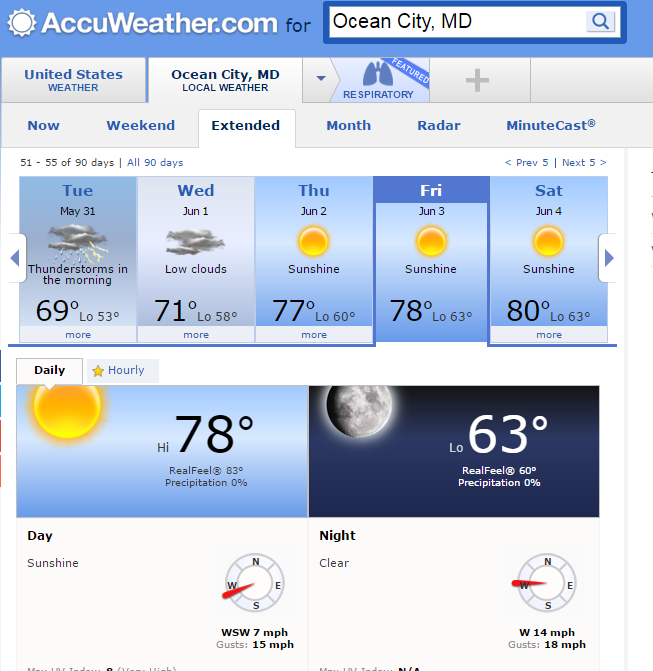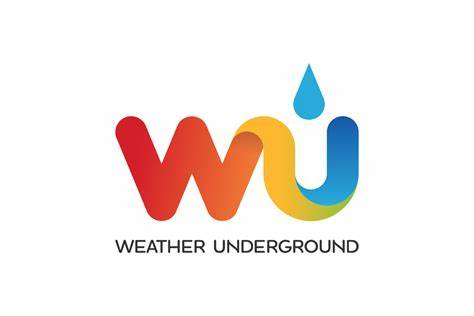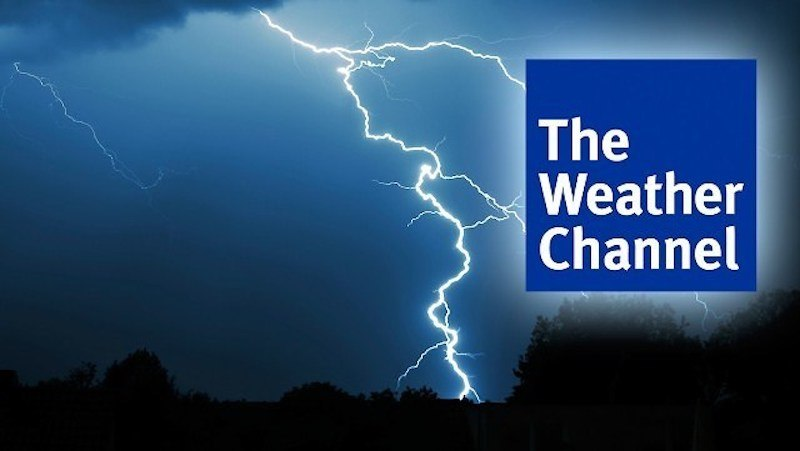Which weather app is the most accurate
Planning our daily activities hinges on weather forecasts, having a reliable weather app at our fingertips is indispensable. With an array of options available, choosing the most accurate one can be daunting. In this guide, we delve into the key features that make a weather app stand out and help you find the one that best suits your needs.
What makes a good weather app?
Accuracy:The cornerstone of any weather app is its accuracy. Look for apps that source data from reputable meteorological agencies or use advanced forecasting algorithms. Accurate predictions ensure you're well-prepared for any weather conditions, be it a sudden downpour or scorching heat.
User Interface:A clean and intuitive user interface enhances the overall user experience. Opt for apps that display weather information in a clear and organized manner, with easy navigation between different sections such as hourly forecasts, radar maps, and severe weather alerts.
Comprehensive Data:Beyond basic temperature and precipitation forecasts, a good weather app should provide comprehensive data such as humidity levels, wind speed and direction, UV index, and air quality. Access to detailed weather insights empowers users to make informed decisions about outdoor activities and travel plans.
Reliable Forecasting:Consistency in forecasting builds trust among users. Choose apps that deliver reliable predictions consistently, backed by real-time updates and frequent data refresh rates. A reliable weather app should also offer accurate long-term forecasts, helping users plan ahead for upcoming events or trips.
Location Flexibility:Whether you're at home or traveling abroad, your weather app should adapt seamlessly to your location. Look for apps that offer precise weather forecasts for any location worldwide, with the option to save multiple locations for quick access.
Offline Access:In areas with limited internet connectivity or during emergencies, offline access to weather information is crucial. Select apps that allow you to download weather data for offline use, ensuring you stay informed even when you're off the grid.
Minimal Ads:While ads help support free weather apps, excessive advertising can clutter the user experience. Opt for apps that strike a balance between ad revenue and user satisfaction, minimizing intrusive ads while still offering valuable features.
Finding the most accurate and reliable one can be a challenge. With various options boasting different features and capabilities, making the right choice becomes crucial. In this review, we'll compare three top contenders: AccuWeather, Weather Underground, and The Weather Channel, highlighting their features, pros, and cons to help you decide which one suits your needs best.

AccuWeather:
AccuWeather is renowned for its detailed and accurate forecasts, making it a popular choice among users. Its standout features include MinuteCast, which offers minute-by-minute precipitation forecasts localized to your exact location, and RealFeel Temperature, providing a more accurate indication of how the weather truly feels outside. Additionally, the app offers severe weather alerts and interactive weather maps for comprehensive weather tracking.
Pros:
- Superior accuracy in predicting weather conditions.
- Regular weather updates every 15 minutes.
- Customizable weather alerts and notifications.
- Clean and user-friendly interface.
Cons:
- Some users experience excessive ads in the free version.
- Reports of the app malfunctioning in regions outside the U.S.
- Accuracy of MinuteCast feature may vary in rural areas.

Weather Underground:
Weather Underground stands out for its unique approach, sourcing data from a vast network of personal weather stations for hyper-local forecasts. Users benefit from detailed and precise weather information, including air quality, UV index, and flu outbreaks. The app's interactive weather maps and crowd-reporting feature enhance its reliability and usability.
Pros:
- Highly localized weather information from a extensive network.
- Detailed analysis of weather data, including niche factors.
- Modern and intuitive user interface.
Cons:
- Some users report performance and stability issues.
- Limited availability of personal weather stations outside the U.S.
- Presence of ads in the free version, with an ad-free option requiring a subscription.

The Weather Channel:
As one of the most recognizable names in weather forecasting, The Weather Channel offers comprehensive weather information with detailed forecasts, severe weather alerts, and interactive radar maps. Its additional features, such as allergy and flu reports, cater to health-sensitive users. Despite occasional ads and performance concerns, the app remains a reliable choice for staying informed about weather conditions.
Pros:
- Detailed forecasts covering various aspects of weather.
- User-friendly interface with clear graphics.
- Consistent accuracy in weather forecasting.
Cons:
- Intrusive ads reported by some users.
- Occasional slowdown compared to other apps.
- Limited features for users outside the U.S.

Choosing the Best Weather App for You:
While accuracy is a key factor in selecting a weather app, individual preferences and needs also play a significant role. Consider factors such as location precision, frequency of updates, and additional features like air quality reports or integrations with other services.
Remember, the "best" weather app is subjective and depends on what matters most to you. Whether it's reliability, user interface, or specialized features, prioritize what aligns with your requirements and preferences.
Enhancing Weather Predictions with IFTTT:
IFTTT (If This, Then That) offers a unique way to customize and automate your weather-related tasks. With integrations like receiving notifications for rain forecasts or adjusting smart home devices based on weather conditions, you can enhance your weather tracking experience and stay ahead of changing weather patterns.
In conclusion, finding the perfect weather app involves weighing the features, pros, and cons of each option against your specific needs. Whether you prioritize accuracy, usability, or additional features, there's a weather app out there to keep you informed and prepared for whatever weather comes your way.